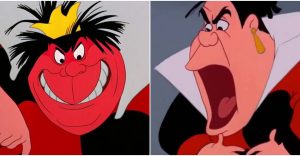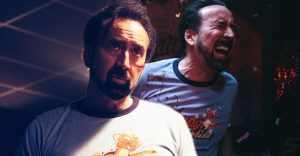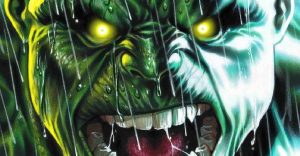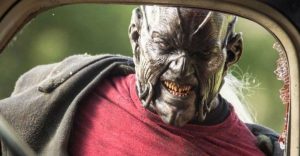The Best Dark Comedy From Each Year Of The 1970s

In the 1970s, a new generation of filmmakers created grungy, gutsy cinematic tales and characters that changed the face of Hollywood. As these directors, who were all white men, broke into the mainstream, legions of independent and international directors were also pushing envelopes and breaking boundaries for different audiences.
Nothing testifies to this like the plethora of dark comedies released during the 1970s. Full of gallows humor, morally unsound characters, and endless social commentary, these films remain among the best of their decade. In fact, every year in the 1970s saw the release of at least one fantastic, influential dark comedy.
10 1970: M*A*S*H

Robert Altman’s canonical black comedy about Korean War medics grappling with the horror of their situation was released in the middle of the Vietnam War. The Mobile Army Surgical Hospital at the center of the film is occupied by a group of disgruntled, weary men who turn to comedy for relief.
M*A*S*H stars some of the biggest names in Hollywood at the time: Donald Sutherland, Elliott Gould, Tom Skerritt, and Robert Duvall. The movie’s popularity led to the creation of a long-running TV series that aired from 1972 until 1983.
9 1971: Harold And Maude

One of the important names in the New Hollywood movement was Hal Ashby, and his second feature film isn’t afraid to throw comedy conventions out the window. Harold and Maude is Ashby’s absurdist love letter to life, and it features one of the best odd couples in cinematic history.
Ruth Gordon plays Maude, an 80-year-old concentration camp survivor and car thief who strikes up a unique bond with Harold (Bud Cort), a 20-something nihilist who is far more interested in death than life. Maude shows Harold how to enjoy and appreciate life, and the two fall in love in the process.
8 1972: The Discreet Charm Of The Bourgeoisie

Spanish filmmaker Luis Buñuel was making surrealistic comedies long before Hal Ashby or Robert Altman. The Discreet Charm Of The Bourgeoisie is the culmination of a long filmmaking career, and it’s one of the most hilarious films ever made.
The film follows a group of French elites whose efforts to sit down and share a decadent meal together are perpetually thwarted by strange events. Buñuel plays tricks on both his actors and his audience as the film reaches a dream-like, satirical conclusion.
7 1973: Theatre Of Blood

Theatre of Blood is far from a normal Vincent Price gothic movie. This brilliant horror comedy directed by Douglas Hickox riffs on the very nature of performers and the critics who riff on them.
In Theatre of Blood, Price plays a humiliated Shakespearean actor who avenges the critics who sullied his reputation. Price’s character Edward Lionheart plans a theatrical series of deaths befitting each of his victims, and the result is a bloody romp.
6 1974: Young Frankenstein

Mel Brooks also managed to put most other horror comedies to shame with his Frankenstein spoof starring Gene Wilder. Young Frankenstein not only dissects the genre; it offers up some of the most brilliant dark humor of the 1970s.
To riff on classic 1930s horror films, Brooks pushed his actors to be as slapstick and histrionic as possible. Wilder and Brooks wrote the screenplay together, which revels in taboos, smut, and hilarious characterizations of horror movie personas.
5 1975: The Stepford Wives

The ideals of suburban living are put on the chopping block in The Stepford Wives. When a woman named Joanna moves with her husband from New York City to Stepford, Connecticut, she stumbles into a community where all the wives dress the same and maintain traditional, subservient relationships with their husbands.
Joanna, played by Katharine Ross, soon realizes this is not by choice. It turns out the women are part of a misogynistic experiment to transform women into servile objects who obey their husbands. The Stepford Wives manages to make some compelling statements about the burgeoning women’s liberation movement while also providing moviegoers with a fresh, original plot.
4 1976: Network

Network is one of those smart, tense dark comedies way ahead of its time. Sidney Lumet’s brilliant dig on the booming network television industry stars Peter Finch as a veteran news anchor who loses it on air when he announces his forced retirement after 25 years.
Finch’s character Howard Beale garners so much public interest after his outburst the network decides to keep him on air a bit longer in order to boost their ratings. The bleak implications about the bottom line for TV companies reach a shocking finale in Network, which also co-stars Faye Dunaway.
3 1977: Desperate Living

Cult filmmaker John Waters rounds out his Trash Trilogy with Desperate Living. While it doesn’t feature his long-time collaborator Divine, the kitschy, subversive comedy tells the story of a housewife who murders her husband and then flees with her maid.
The women on the run seek shelter in a homeless community built into the side of a municipal dump. They get caught up in the shantytown’s bizarre monarchy, and the action takes a distinctly Watersian turn from there.
2 1978: Blue Collar

Paul Schrader’s Blue Collar is the kind of dark comedy that leaves audiences pondering the plight of the working class. The film stars Richard Pryor, Harvey Keitel, and Yaphet Kotto as Detroit auto workers who discover their local union bosses are scamming them.
The desperate, overworked men begin to implode, and Schrader’s narrative ultimately offers up little hope. Still, Blue Collar is rife with understated humor, unfeigned dialogue, and authentic excavations of how corrupted commercial industries pit their workers against each other.
1 1979: Being There

Hal Ashby ended the 1970s helming one of the most unique comedies of all time: Being There. Peter Sellers, in one of his final film roles, plays a Washington, D.C. gardener who spent his entire adult life caring for his employer’s property and watching TV. When Chance’s employer dies, he’s forced onto the streets, where he has no sense of how things function in the real world.
Still, the simple-minded Chance manages to meet the right people and get invited to the right parties, as he’s best friends with the President before he knows it. Being There offers up an unparalleled critique of American whiteness, politics, and privilege.
About The Author

















